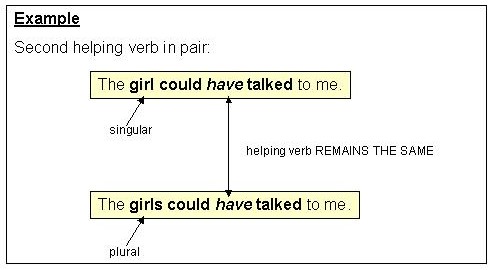고정 헤더 영역
상세 컨텐츠
본문


Grammatically, you should say are many, but as a lot in english depends on it being easy to pronounce/say, it's sometimes used in conjunction with is, but really only as a contraction. There's many of them here. Though not grammatically correct, it is often said.I think it comes from the contraction there's been many times that I have., meaning 'there has', and it's carried over to the use of many.As a contraction, it's relatively acceptable in spoken English, but not so much in written English. I wouldn't use it in a test or anything like that.Mike. Grammatically, you should say are many, but as a lot in english depends on it being easy to pronounce/say, it's sometimes used in conjunction with is, but really only as a contraction.
There's many of them here. Though not grammatically correct, it is often said.I think it comes from the contraction there's been many times that I have., meaning 'there has', and it's carried over to the use of many.As a contraction, it's relatively acceptable in spoken English, but not so much in written English. I wouldn't use it in a test or anything like that.Mike. My instincts/ear said that it was 'there are so many'. Except I couldn't explain why to my student or to myself. Hi JacintaKudos for sticking to your grammatical guns.I hope none of my statements remotely implied it was 'proper English', but that it is acceptable in spoken English (and that being relatively) by English speakers. I doubt anyone would look at you funny in the middle of conversation if you said 'there's a lot of people in the square today', as they might if you said 'I is one well-chuffed geeza'.
Every Singular Or Plural
I hope it was also clear that my remarks regarded its use in the contracted form.For me, it's very similar to saying 'who were you speaking to'. Not proper English at all, but commonly said. A lot of what we say really does depend on if it's easy to say and sounds pleasant to the ear.I could easily walk into a restaurant or bar and say, damn it, there's too many people in here.
Normally, it is followed by a plural noun – but sometimes it is followed by a singular noun. Why no can be followed by either a singular or plural noun. The reason that no can be followed by either a singular or a plural noun is that it can mean not a or not any.
Let's go somewhere else.Regarding English language learners, although it is very important to teach them the correct forms, it's also important to teach them how natives of the tongue actually speak. You don't want them conversing with English speakers and taking the impression that they're speaking to semi-literate buffoons.People do say it, therefore it should be taught.So, there is my opinion, for better or worse.Mike. I think the confusion lies in the use of 'so many' before the word 'toys'. Because toys are countable nouns, we use 'so many' to quantify or modify the grammatical subject.Compare:(a) Toys / are / strewn on the floor.(b) So many toys / are / strewn on the floor.Both are essentially and grammatically the same.Contrast it now with an uncountable noun:(c) Sugar / is being poured / into the container.(d) So much sugar / is being poured / into the container.
Couple is a singular noun. It is, however, also a collective noun, and these creatures will sometimes find themselves paired with a plural verb, and sometimes with a singular one. Any - one, some, every, or all without specification: Take any book you want. Are there any messages for me? Any child would love that. Give me any food you don't want. When used as a pronoun, 'any' can take either a singular or plural verb, depending on how it is construed: Any of these books is suitable (that is, any one).
Alternatively: 'Too much sugar is being poured into the container'Hope this helps.

Note that many indefinite pronouns also function as other parts of speech. Look at 'another' in the following sentences:. He has one job in the day and another at night. (pronoun). I'd like another drink, please. (adjective)Most indefinite pronouns are either singular or plural.
However, some of them can be singular in one context and plural in another. The most common indefinite pronouns are listed below, with examples, as singular, plural or singular/plural.Notice that a singular pronoun takes a singular verb AND that any personal pronoun should also agree (in number and gender).
Look at these examples:. Each of the players has a doctor. I met two girls. One has given me her phone number.Similarly, plural pronouns need plural agreement:. Many have expressed their views. Pronounmeaningexamplesingularanotheran additional or different person or thingThat ice-cream was good. Can I have another?anybody/ anyoneno matter what personCan anyone answer this question?anythingno matter what thingThe doctor needs to know if you have eaten anything in the last two hours.eachevery one of two or more people or things, seen separatelyEach has his own thoughts.eitherone or the other of two people or thingsDo you want tea or coffee?
/ I don't mind. Either is good for me.enoughas much or as many as neededEnough is enough.everybody/ everyoneall peopleWe can start the meeting because everybody has arrived.everythingall thingsThey have no house or possessions.





